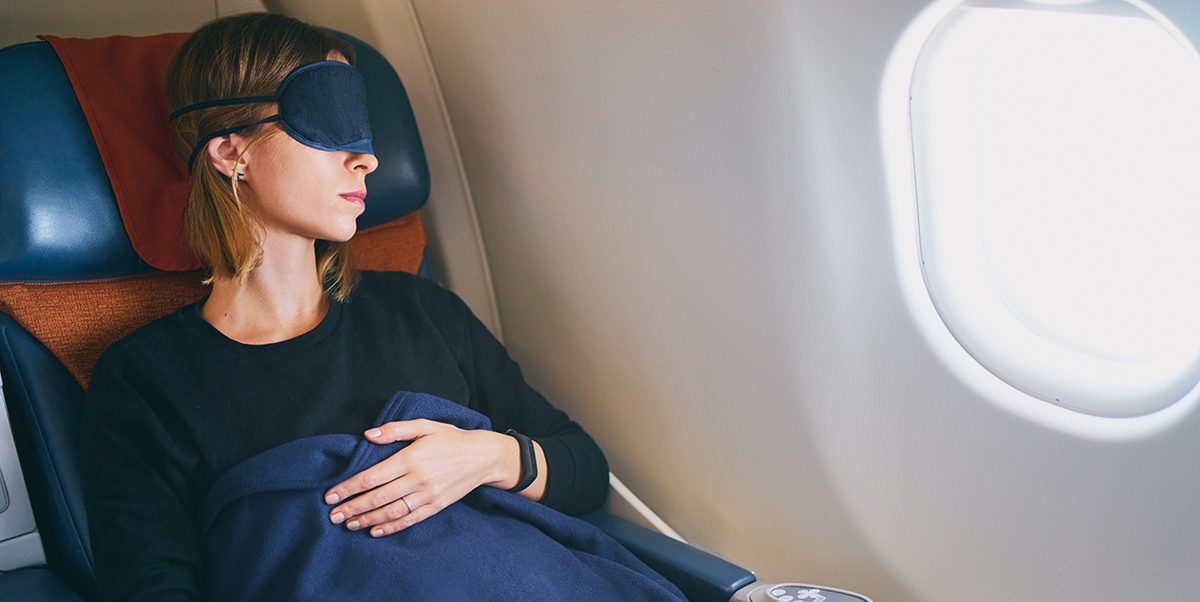Since productions frequently journey across the globe in pursuit of their ideal filming location, many in the industry are familiar with long-haul flights and adjusting to new time zones.
Yet, for some members of your crew, it may have been a while since their last international venture, making this the perfect time to revisit strategies aimed at reducing the effects of jet lag. We all know the challenge of Time Zone Change Syndrome, commonly referred to as ‘jet lag,’ and it is a challenge that can majorly impact our productivity and overall wellbeing.
Regarding international travel for your production, it’s crucial to equip yourself and your crew with every advantage possible to optimise performance. Whether you’re arranging travel logistics or travelling the globe, now is the time to brush up on tips and tricks that help you tackle jet lag head-on.
Scientifically speaking, jet lag disturbs our body’s ‘circadian rhythms’, the 24-hour cycle that regulates our physical, mental, and behavioural patterns. Travelling through different time zones demands a recalibration of these rhythms, often leading to fatigue, digestive discomfort, and concentration difficulties.
While science has yet to find a definitive cure for jet lag, travel experts and health professionals have discovered strategies to integrate into each phase of your journey. These tactics mitigate the impact of jet lag, allowing you to hit the ground running and keep your production efforts on track.
Reducing jet lag before your flight
1. Select flights that arrive in the afternoon
Opt for flights arriving at your destination in the afternoon or early evening, as this assists in readjusting sleeping patterns and avoiding unnecessary naps. If this isn’t an option, limit daytime naps to less than 45 minutes, as this will allow you to adjust to the new time zone more quickly, boosting alertness and productivity throughout your journey.
2. Choose a carrier with lie-flat beds
Fully lie-flat beds are a business and first-class luxury that are becoming standard in some airlines today. This is because horizontal sleeping plays a major role in facilitating deep sleep and minimising jet lag. If the front end of the aircraft is not feasible, consider the premium economy alternative. Premium economy usually provides greater seat reclining, wider seats, and extra legroom to assist with sleep without blowing your budget.
3. Limit screen time
Where possible, avoid using your phone or laptop unless necessary. It is well known that the blue light emitted from such devices can disrupt your circadian rhythm and melatonin secretion, hindering sleep quality. Activating the “Night Mode” feature found on most mobile devices can also help you regulate your body clock by dimming and warming the light when the local environment is dark.
4. Avoid caffeine and alcohol
As pressurised cabin air is already very dehydrating, it is wise to steer clear of caffeinated and alcoholic drinks in flight. High altitudes amplify alcohol’s impact (one in the air is equivalent to two on the ground); the last thing you need to add to your jet lag is a hangover. Keep a water bottle handy and take occasional sips to stay hydrated.
5. Light meals only
Some travellers fast on their journey to mitigate jet lag. If that’s not an option, choose easily digestible options like fruits, vegetables, or light warm meals. This aims to minimise the potential for discomfort and fatigue, so you arrive refreshed and ready to hit the ground running.
When you arrive at your destination
1. Expose yourself to light
Light and darkness control our circadian rhythms, so the sooner you expose your body to natural light, the sooner your biological clock can adjust.
2. Increase your melatonin levels
Melatonin, a hormone that regulates sleep, is naturally produced in your body. Eating foods high in tryptophan, such as dairy, red meat, fish, and peanuts, can help stimulate melatonin. Seek professional medical advice before taking any health supplements.
3. Keep your regular exercise routine
Exercise helps to increase your body temperature, which plays a role in resetting your circadian rhythm. Try exercising outside to take in the natural sunlight and quicken the process.
4. Find your nearest body of water!
Having done our fair share of long-haul travel, the Show Group team is no stranger to the battle against jet lag. During his travels, Show Group’s General Manager, Nick Smith, received a jet lag tip from an international flight attendant that he stands by. Nick shares, “Once you arrive at your destination, take a 20-minute dip in a body of water, whether it’s the ocean, your hotel pool, or a deep bath. It might be a placebo effect, but it hasn’t let me down yet!” While not scientifically backed, Nick stands by this method.
While there is no definitive cure or method to avoid jet lag altogether, adopting these small actions before, throughout and after your flight can go a long way in helping you adapt to your new time zone and conquer jet lag more swiftly.
An excellent journey begins with expert travel management. Contact Show Group today to find out how our team can transform your next production’s travel experience.
